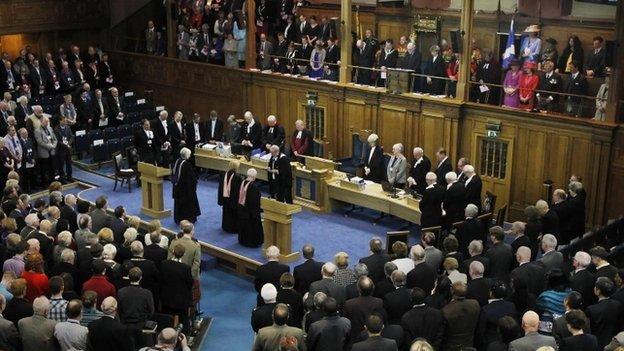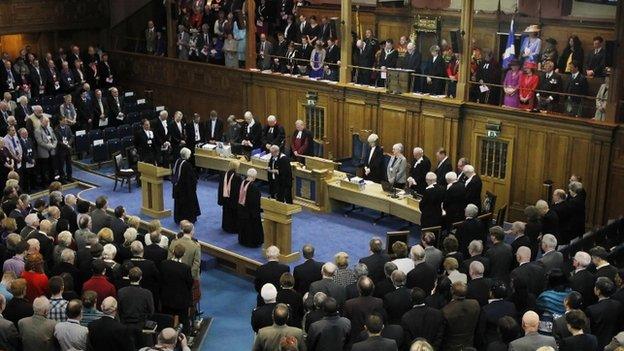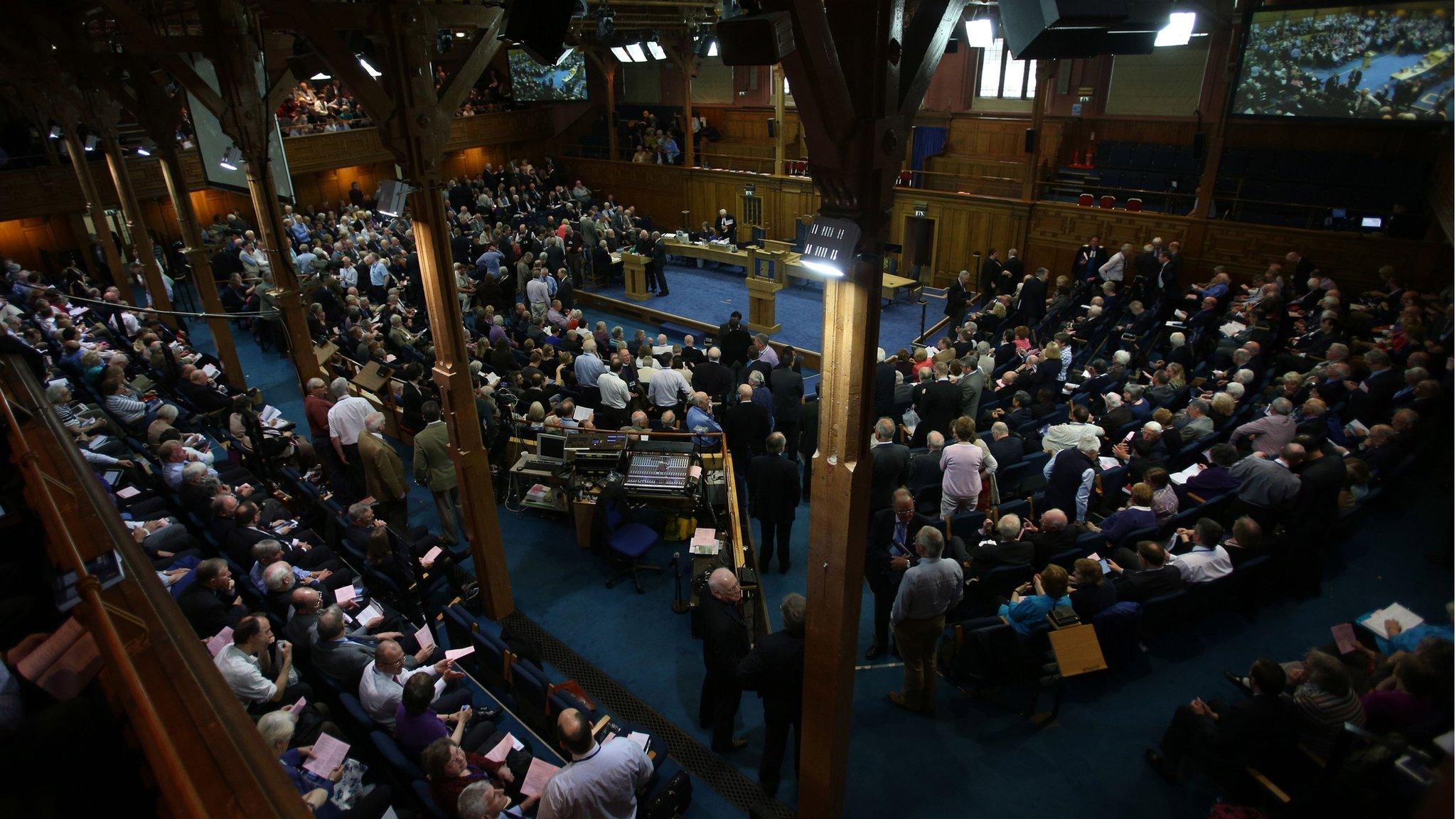Kirk decision on allowing gay ministers to marry delayed
- Published

The Kirk's General Assembly voted on Saturday to allow congregations to appoint gay ministers in civil partnerships
A decision by the Church of Scotland on the position of ministers who wish to enter same-sex marriages has been delayed to allow wider consultation.
The issue was being debated at the Kirk's General Assembly.
It follows a vote earlier this week to allow congregations to appoint gay ministers in civil partnerships.
The Church's presbyteries, or local areas, will now be asked to vote on extending this to ministers in same-sex marriages, before it can be approved.
Commenting on the Assembly's decision, Very Reverend David Arnott, co-ordinator of the principal clerk's office, said: "The General Assembly understood this to be a logical extension of the benefits which accrue to those in civil partnership.
"Very Rev Prof Iain Torrance assured the assembly the Theological Forum will bring a report on same sex marriage to a future Assembly, which we will look forward to.
"Out of a pastoral concern for the whole church, the General Assembly decided to pass this overture to the presbyteries who will report to the assembly in May 2016."
'Mixed economy'
If a majority of Presbyteries give their approval, the matter will return to the General Assembly next year, where a final decision will be taken.
Following Saturday's vote on civil partnerships, supporters of the move said it was time for the church to be inclusive and recognise the "mixed economy" of modern Scotland.
However, opponents warned that the move was contrary to God's law, would prove divisive and lead to resignations.
The issue of gay ministers has divided the church for some time.
In 2009 some members attempted to block the appointment of the Reverend Scott Rennie, who is gay, to Queen's Cross Church in Aberdeen.
At the Kirk's gathering in 2011, commissioners voted to accept gay and lesbian clergy - on the condition they had declared their sexuality and were ordained before 2009.
Last year, the general assembly voted to allow presbyteries to debate whether congregations could opt out of its traditional stance and appoint gay ministers.
- Published16 May 2015

- Published7 January 2015

- Published21 May 2014

- Published19 May 2014
